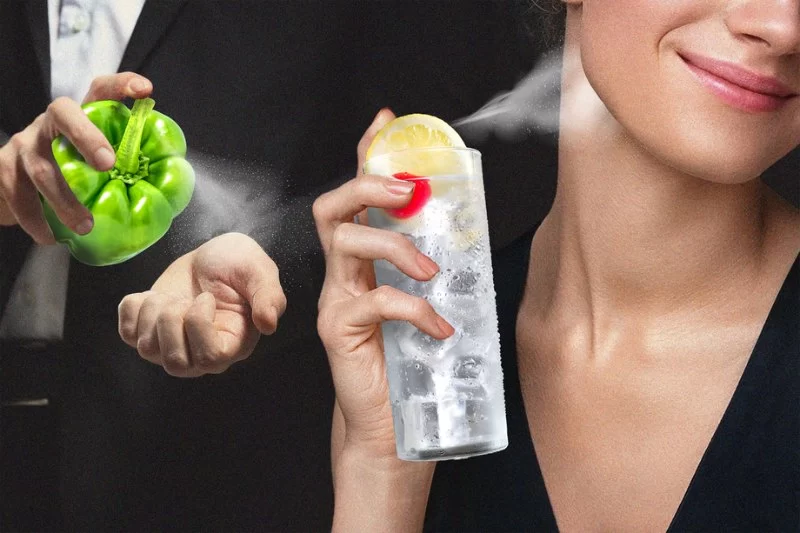- understanding-why-food-might-taste-like-perfume
- common-sources-of-perfumey-flavors-in-food
- how-scent-and-taste-are-connected
- real-stories-when-dining-turns-unexpectedly-fragrant
- what-you-can-do-if-your-food-smells-or-tastes-like-perfume
- when-to-ask-scent-snob-for-expert-help
1. Understanding Why Food Might Taste Like Perfume
Have you ever taken a bite of your favorite dish and suddenly felt like you were eating a spritz of eau de toilette? You’re not alone. Many people wonder, “Why does food taste like perfume?” and the answer usually lies in a fascinating mix of sensory perception, environmental influence, and sometimes, ingredient interaction. Food tasting perfumey can be confusing and off-putting, but there’s science behind this strange phenomenon—and often, practical ways to prevent it.
2. Common Sources of Perfumey Flavors in Food
2.1 Cross-contamination from fragrances
One of the most frequent culprits is fragrance residue. If someone in the kitchen wears strong cologne, or if cleaning sprays or air fresheners are used around your food prep area, those microscopic scent particles can settle into the dish—altering its taste dramatically.
2.2 Overuse of floral or aromatic ingredients
Certain ingredients, especially herbs like lavender, rose water, and even cardamom, carry floral notes that can easily cross the line from “elegantly aromatic” to “like chewing on grandma’s perfume bottle” if not balanced correctly. A novice cook might unknowingly add too much of a potent extract, creating a perfumey flavor that overpowers everything else.
2.3 Storage near scented products
Believe it or not, food stored in the same fridge or pantry as perfumed items—like scented candles, air fresheners, or even strongly fragranced soap—can absorb those scents. Plastic packaging and porous materials like bread or rice are especially vulnerable.
3. How Scent and Taste Are Connected
The human brain relies heavily on scent to interpret flavor. What you “taste” is often what you smell. This means that even trace amounts of airborne fragrances can influence how a dish is perceived. There’s even a scientific name for this: retronasal olfaction. It’s why foods taste flat when you have a cold, and why walking past someone in strong perfume while chewing can suddenly make your lunch taste like Chanel No. 5.
This neurological link is what makes eating such a multisensory experience—but also why perfume-like tastes can sneak into meals so easily.
4. Real Stories: When Dining Turns Unexpectedly Fragrant
Jessica, a home baker from Portland, recalls baking lemon-lavender cupcakes for her friend’s baby shower. “I thought they’d be elegant,” she said, “but the lavender completely overpowered the citrus, and someone whispered it tasted like soap. Total disaster.” This kind of culinary mishap is common when experimenting with florals.
In another case, a New York chef reported customer complaints about steak tasting “sweet and perfumed.” After some investigation, they found the cleaning crew had used lavender-scented disinfectant on the grill covers without rinsing thoroughly.
5. What You Can Do If Your Food Smells or Tastes Like Perfume
5.1 Review your kitchen environment
Stop using scented candles, sprays, and heavily perfumed cleaning products in your kitchen or near stored food. Consider fragrance-free alternatives for dish soap and surface wipes.
5.2 Taste test aromatic ingredients
Before adding floral extracts or essential oils, try a small batch first. A few drops of rose water can add intrigue—but too much makes dessert inedible.
5.3 Trust your instincts—and palate
If your food unexpectedly tastes like perfume, it probably isn’t your imagination. Start tracing the source. Is it the container? The ingredient? The air itself? Make adjustments accordingly.
6. When to Ask Scent Snob for Expert Help
If you’re passionate about food and fragrance, Scent Snob offers curated advice on balancing aromatic profiles—whether in your kitchen or your personal care products. We also help you identify which scents complement food and which should be kept far away from it.
When your taste buds send mixed signals, don’t ignore them. A touch of perfume in the wrong context can ruin an otherwise perfect meal. Let Scent Snob guide you toward a more harmonious relationship between scent and flavor.


0 comments